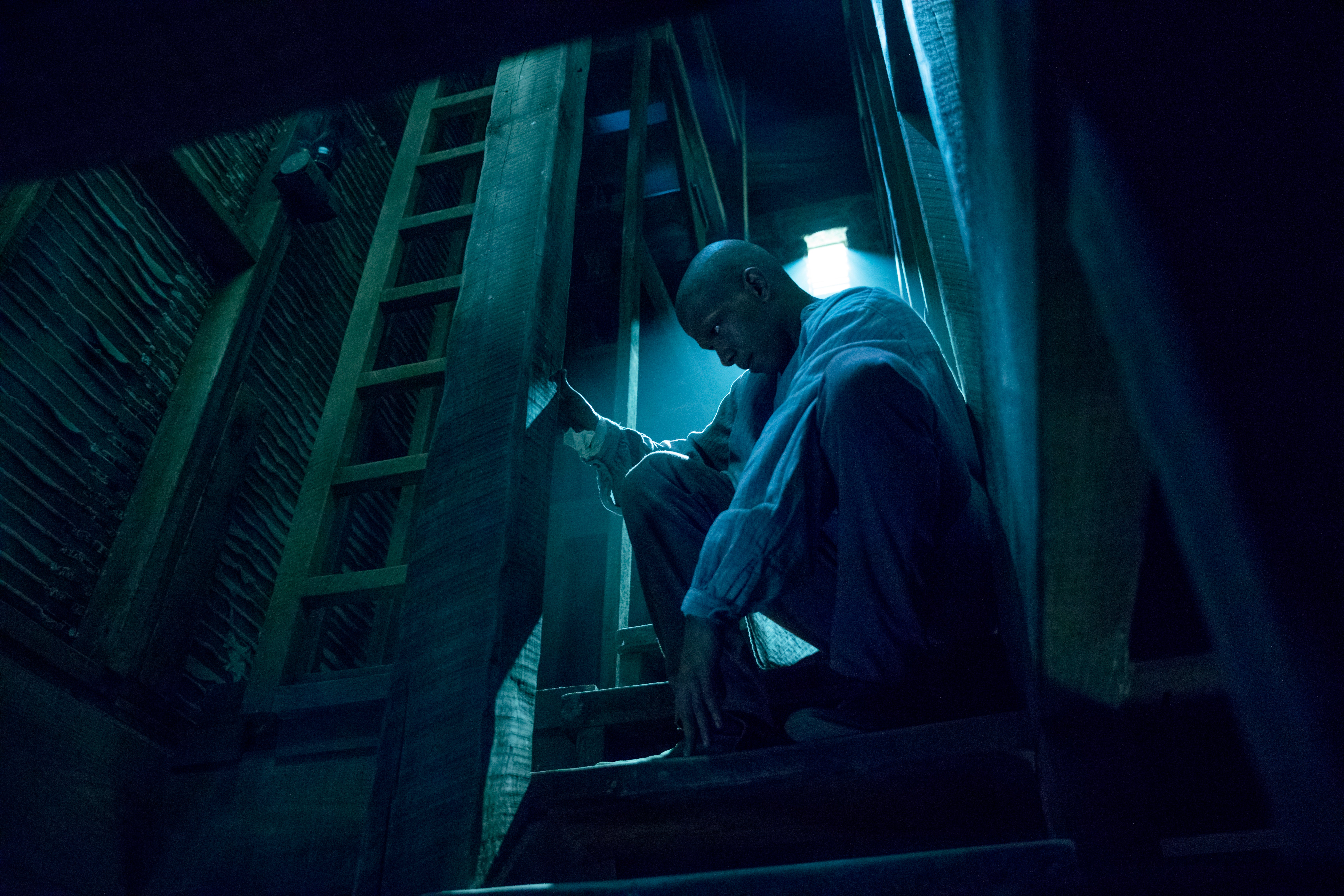
In the ninth episode of the second season of Underground, we find ourselves in a sliding timeline of sorts.
The episode opens with Elizabeth and Cato who now both dwell in Georgia’s boarding house. Cato and the rest of Patty Cannon’s Black men have infiltrated the safe house on her orders, and Cato spends his time memorizing trap doors, and passageways in the home. What he didn’t expect was to happen upon Harriet Tubman herself. Constantly alert and vigilant, Harriet can sense something just isn’t right with Cato, and she warns Georgia to keep a close eye on him.
Returning to Patty Cannon’s home late in the evening, Cato reports back to her about his findings. Though he only knows Harriet by the name Minty, he tries to tell Patty that he thinks he’s found the most notorious runaway of all time. Impatient and enraged, Patty doesn’t believe Cato. Instead, she tells him that he has three days to make his move. Cato chooses to buy more time and get closer to the women in the house by faking a suicide attempt and cutting his wrists.
Meanwhile, Elizabeth’s fear and anger has begun to morph into an untamable rage. It’s further ignited when one of the men who kidnapped her and tied her to a tree walks right into the boarding house, masquerading about getting a room. In response, Elizabeth slaps the hell out of him. Later while tending to Cato’s wounds, the two lament about fear, anger, and pain and Cato encourages Elizabeth to become the monster that she fears the most.
Taking Cato’s advice, Elizabeth sets her kidnapper’s home ablaze, not accounting for his son’s presence. Though she saves the boy and Cato saves her (we think), her actions have made her too dangerous in Georgia’s eyes. She tells Georgia, “We are all complicit as long as there is slavery in this country.” Sadden for her friend but having no other choice especially after seeing a badly hurt and burnt little boy, Georgia tells Elizabeth she must leave the boarding house.
Further South, Harriet has met Rosalee, Noah, and James in Virginia. Sadly, Cora did not make it to freedom; slave catchers murdered her on the way. With many miles still ahead of them on their journey, Noah is struggling with both his faith and the secrets that Rosalee has kept from him. Though she seems apprehensive about Rosalee’s man at first, Harriet levels with him. She asks him how he as a humble enslaved blacksmith knew he could lead the Macon 7 and make it 600 treacherous miles to freedom. That’s faith she says.
And yet, a reassurance in faith will not heal the wounds in Noah and Rosalee’s relationship. Once they make it back to Ohio and Georgia’s safe house, Noah goes in on Rosalee for her selfishness and secrets. He tells her, you had me following you back South blindly without a choice and you put my child in harm’s way. You treated me like a slave. He’s not lying.
Finally, at long last, we get to see how Daniel’s story is interwoven with the rest of the characters on Underground. The newly blinded stonecutter can sense that his time on the plantation is up. Using his young daughter as his eyes, we learn that his master is selling off the families of those who were involved with reading and writing. Though his wife wants him to be more docile and complacent out of fear, Daniel is done with all that. Freedom is calling his name; it’s his only way to salvation. Hired out to work one day, he makes it 300 plus miles from St. Louis, Missouri to Ripley, Ohio where he happens across a cobbler’s shop and asks for John Brown.
In actuality, Ripley, Ohio was home to John Rankin who was Ohio’s first and most active conductor on the Underground Railroad. Rankin was a Presbyterian minister, and it is said that over 3,000 people made their way to freedom through his home, which stood high on a hill overlooking the Ohio River. A single light in the window meant that the cost was clear for runaways. Rankin also told Harriet Beecher Stowe the story of a runaway slave and her child who crossed the frozen Ohio River, a tale that Stowe recounted later in her novel Uncle Tom’s Cabin which helped highlight the horrors of slavery.
When Rankin first arrived in Ripley in 1822, it was not a nice town to live in especially for a preacher. The streets were filled with brawlers and shootouts. The biggest economy in the town was saloons, and as a preacher, Rankin and his family were subject to hecklers. However, after learning that his brother had purchased slaves, Rankin begin writing letters to him hoping to get his brother to free them. (He eventually did.) Those letters were published in the local Ripley newspaper, The Castigator and helped deepen Rankin’s interest in the abolitionist movement.
Though the Rankin House is not explicitly mentioned in Underground, Rankin surely knew of John Brown, and Georgia’s safe house might be a substitute here for it in the series. After all, that’s where Daniel finds himself as the episode comes to a close.
Underground airs Wednesdays at 10 PM ET on WGN America.
